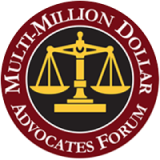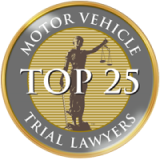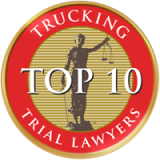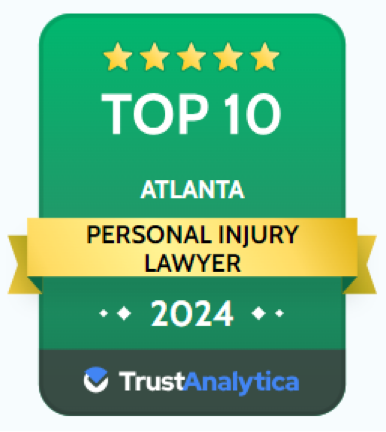All information provided about the law is very general in nature and should not be relied upon as legal advice. Every situation is different and should be analyzed by a lawyer who can provide individualized advice based on the facts involved in your unique situation, and a consideration of all of the nuances of the statutes and case law that apply at the time.
What Happens If Someone Else is Driving My Car and Gets in an Accident?
In Georgia, situations like these can raise complicated questions about insurance coverage and liability. Many car owners are left uncertain and unprepared when an accident involving someone else driving their vehicle occurs. Equally, if you are involved in an accident caused by a person driving someone else’s vehicle, the issues of liability and the applicability and priority of insurance policies can be rather complicated.
On any given day, car accidents occur suddenly and without warning. Letting a friend or family member borrow your car is a common act of kindness, but if they’re involved in a crash, it can lead to confusion, stress, and legal complications. You may wonder, “What happens if someone else is driving my car and gets in an accident?”
In Georgia, situations like these can raise complicated questions about insurance coverage and liability. Many car owners are left uncertain and unprepared when an accident involving someone else driving their vehicle occurs. Equally, if you are involved in an accident caused by a person driving someone else’s vehicle, the issues of liability and the applicability and priority of insurance policies can be rather complicated.
Understanding your potential liability, along with how to handle injuries or property damage, can be overwhelming. Let’s break down your legal responsibilities, explain how Georgia’s car insurance laws apply, and outline a checklist of steps to take to protect yourself after an accident.
Georgia’s At-Fault Insurance System
Georgia operates under an at-fault insurance system, meaning the driver who is deemed to be “at fault” for causing the car accident is, under most circumstances, financially responsible for the resulting damages. However, when someone else is behind the wheel of your vehicle and gets into a collision, the question of who pays and which insurance policy applies, becomes significantly more complex.
Can Someone Drive My Car If They Are Not on My Insurance?
At a fundamental level, allowing someone else to drive your vehicle also means extending your auto insurance coverage to them. Insurance policies in Georgia typically follow the vehicle, not the driver. So, if you let a friend borrow your car, or vice versa, you’re essentially exchanging insurance coverage for the duration of that use.
Georgia also follows a modified comparative negligence rule under O.C.G.A. § 51-12-33 to determine how fault and compensation are allocated in car accident cases. Under this metric, a party can recover damages only if they are found to be less than 50% at fault for the accident and any compensation awarded will be reduced by their percentage of fault.
For example: If a driver is found to be 20% at fault in a $10,000 accident claim, the compensation would be reduced to $8,000. But if the driver is 50% or more at fault, they are prohibited from recovering any damages.
The role of permission is an important aspect when determining fault and liability. When another person causes an accident while driving your car, Georgia’s fault analysis will take into account two aspects: the driver’s conduct and whether you, as the vehicle owner, were negligent in allowing that individual to operate your car.
The Role of Permission and Liability Distributions
What happens if someone else is driving my car and gets in an accident in Georgia? Every vehicle owner should understand how insurance and liability work, especially before handing the keys to someone else.
Various factors, like the type of relationship between the driver and the vehicle owner, the circumstances of the accident, and the type of permission given, can all influence how coverage is applied and who ultimately bears financial responsibility.
Permissive Use Scenarios
Permissive use refers to situations where a vehicle owner gives someone else permission, either explicitly or implicitly, to drive their car. Georgia law recognizes both forms of permission, and in most cases, the vehicle owner’s auto insurance policy will provide coverage under permissive use.
- Explicit permission occurs when you directly authorize someone to use your vehicle, like letting someone borrow your car for personal errands.
- Implied permission is more complex but still legally valid. It typically involves recurring access or circumstances that suggest ongoing approval to use the vehicle, such as an adult child living at home who uses a parent’s car frequently.
Non-Permissive Use Cases
When someone drives your vehicle without your permission and gets involved in a car accident, the insurance and liability dynamics shift significantly. In these situations, your auto insurance may refuse to provide coverage, placing the financial responsibility on the unauthorized driver’s insurance — if they have any.
Proving that someone did not have permission to drive your vehicle is not always straightforward. Under Georgia law, the burden of proof lies with the vehicle owner who must demonstrate that no permission, explicit or implied, was granted prior to the individual operating the vehicle.
Successfully arguing non-permissive use requires showing that the person took the vehicle without your knowledge or against your direct instructions.
This includes proving that you did not explicitly authorize them to drive and that no implied permission existed, based on prior behavior, regular access, or established patterns of use.
Some common non-permissive use scenarios include:
- A stranger or criminal stealing your car for vehicle theft or joyriding
- Someone accesses and drives your car while you’re out of town, without your consent
Courts often weigh prior conduct, relationships, and access heavily in determining implied permission. When arguing non-permissive use, it’s essential to be clear and consistent about who is allowed to use your vehicle and who is not.
Negligent Entrustment in Georgia
Negligent entrustment is one of the most serious liability risks vehicle owners face in Georgia. A vehicle owner can be held legally responsible for damages if they knowingly allow an unfit, incompetent, or dangerous driver to operate their vehicle.
Courts will evaluate whether you knew or reasonably should have known that the person you entrusted with your car posed a risk to others on the road. These cases often involve individuals with a documented history of DUIs, suspended licenses, or prior accidents.
Factors that may support a negligent entrustment claim include if the driver was:
- Inebriated or under the influence of drugs
- Driving with a suspended, revoked, or expired license
- Unlicensed, underage, or lacking sufficient driving experience
- Known to have a history of reckless or dangerous driving
- Suffering from a physical or mental condition impairing their ability to drive safely
Vehicle owners have faced substantial legal and financial consequences when courts determine they knew the driver they were allowing to operate their vehicle was unfit to do so.
Family Purpose Doctrine
Under O.C.G.A. § 51-2-2, which holds parents liable for the negligence of their children in certain situations and O.C.G.A. § 51-2-3, which extends liability to malicious acts committed by minor children under the age of 18, the Family Purpose Doctrine can hold a vehicle owner legally responsible for the negligent actions of a family member who causes a car accident.
If a family member, such as a spouse or teenage child, causes an accident while using a vehicle maintained for general family use, the owner may be held liable in a personal injury claim.
This means that if your child or spouse crashes the family car during household use, you as the owner could be held liable — even if you weren’t present.
To apply the Family Purpose Doctrine, Georgia courts typically consider several key factors such as if:
- The vehicle was provided for general family use
- The driver was a member of the owner’s immediate family
- The driver resided in the same household as the owner
- The use of the vehicle at the time was for a family-related or authorized purpose
Given the serious liability exposure the Family Purpose Doctrine creates, vehicle owners should be cautious about who they allow to drive the family vehicle and ensure that household members are properly licensed, insured, and responsible drivers.
Insurance Coverage — Who’s Covered?
Will my insurance cover me if I drive someone else’s car or vice versa? The short answer is “probably” subject to the following order of priority. Georgia law generally follows a three-tiered insurance coverage structure:
- Primary coverage means that the policy for the vehicle owner is first in line.
- Secondary coverage is the driver’s personal insurance, which provides excess coverage if the primary policy is exceeded or denies coverage.
- Tertiary coverage are third-party liability claims, which can be claims made against any other liable parties involved.
This coverage structure means that as the vehicle owner, your policy, if the person driving your car is found to be at fault, is typically the first line of defense, even if you weren’t the one driving.
Your auto insurance policy typically serves as the primary coverage, paying for damages up to your policy limits. If the damages exceed those limits, the driver’s insurance will step in as the secondary coverage to cover the remaining costs.
If it’s proven that the driver did not have permission to use your vehicle, your primary insurance might refuse to cover the damages. In such cases, the non-permissive driver’s insurance would be responsible and if they lack insurance or adequate coverage, you may need to pursue compensation through legal action.
What If the Other Driver Is At Fault?
What happens if someone else is driving my car and gets in an accident but is not at-fault? The at-fault party is financially liable for injuries and property damage.
When another driver causes an accident involving your car, their insurance company is responsible for covering damages and your insurance typically won’t be affected.
However, you may still encounter expenses in the short-term such as:
- Deductible payments
- Rental car expenses, if your policy doesn’t cover them
A Word on Insurance Premiums
Even when a permissive driver causes an accident, it can still affect your insurance premiums. Insurers often raise rates after a claim, as your vehicle is seen as a higher risk.
Importantly, your insurance rates can increase even if the driver wasn’t at fault, since any claim filed against your policy signals greater risk to insurers. However, there are exceptions to this that prevent insurers from raising rates if you use your uninsured or underinsured coverage.
Insurance companies often try to avoid paying claims, even legitimate ones, and they may interrogate you with questions like whether you knew the driver was using your car, whether the driver regularly had access, or whether you were aware of their intoxication, in cases involving a DUI.
Often, insurers don’t have strong evidence and rely on you accepting their denial. Knowing who you’re lending your keys to and the circumstances around it is essential to safeguard your legal and financial well-being. Don’t let them pressure you — your claim may still be valid.
Georgia’s Statute of Limitations
Under O.C.G.A. § 9-3-33, you have 2 years from the date of the accident to file a personal injury or wrongful death lawsuit in Georgia. If you miss this deadline, you may lose your right to seek compensation entirely.
It’s important to file an insurance claim, whether with your own provider or the at-fault party’s insurer, as soon as possible. Delays can raise red flags, giving insurers room to dispute the severity of injuries or question whether they were caused by the crash.
Acting quickly also ensures that key evidence is preserved while it’s still fresh. Insurance claims can take time to resolve, especially when the driver involved wasn’t clearly covered under your policy, so it’s critical to leave enough time to pursue a fair settlement before your legal window closes.
What Should I Do After My Vehicle Is Involved in an Accident?
Taking the right steps after an accident can help protect both your legal rights and financial interests. Immediately following an accident, you should:
-
- File a police report. Georgia law requires you to report any accident involving injury, death, or property damage over $500. Creating a police report creates an official record of the accident and is a crucial step to filing your claim.
- Notify your insurance company. Report the accident within 24 hours, even if it’s a weekend or holiday. Prompt notice can help prevent claim denials or delays.
- Document everything. Take photos of the scene, damage, and any injuries. Collect witness contact information and keep records of all communication with insurers or other parties. Don’t post to social media – messages or social posts you share online can be admitted as evidence if your case goes to court.
- Don’t admit fault. Leave the determination of liability to the insurance companies and legal professionals. Even a simple apology can be misinterpreted and the best course of action is staying composed and neutral.
- Consider legal representation. If injuries are involved or liability is unclear, working with an experienced attorney can make a significant difference in protecting your interests.
Do I Need a Car Accident Lawyer?
If someone else was driving your vehicle and got into an accident, speaking with an experienced car accident lawyer can make a major difference in the outcome of your case. Likewise, if you are injured by someone driving another person’s car, we can help sort through the chaos.
While every situation is unique, our attorneys at Montlick can help you pursue compensation, if you or someone you know is injured by someone driving another person’s car, for:
- Vehicle repair or replacement costs
- Current and future medical expenses
- Lost wages, benefits, and future earning capacity
- Compensation for physical pain, emotional distress, and mental anguish
- Wrongful death damages, if applicable
Whether you’re filing a claim for yourself or navigating the complexities of someone else driving your car, we help streamline the process by:
- Reviewing your case and identifying your legal options
- Filing insurance claims or a personal injury lawsuit on your behalf
- Investigating the accident to determine fault and liability
- Gathering key evidence, including photos, police reports, dashcam footage, witness statements, and medical records
- Documenting your financial losses using bills, receipts, estimates, and expert testimony
- Negotiating aggressively for the maximum possible settlement
- Pushing back against bad-faith insurance tactics or denied claims
- Representing you at trial, if a fair settlement can’t be reached
We understand how overwhelming post-accident situations can be, especially when another person was behind the wheel of your car. If you don’t know where to turn and need help sorting out whether you can pursue a claim or not, reach out to the experienced attorneys at Montlick Injury Attorneys for advice.
We Fight for Your Recovery — Even When the Situation Is Complicated
With over 40 years of experience handling complex car accident claims across Georgia and the Southeast, our firm has the legal knowledge and investigative resources to step in when the process isn’t straightforward. Whether it means arguing non-permissive use, locating key witnesses, or gathering medical and vehicle evidence, we go above and beyond to build the strongest case possible.
Our mission is simple: to fight relentlessly for the full and fair compensation you deserve. While our clients recover, we pursue maximum compensation from negligent parties to ensure our clients have everything they need to move on from the accident. Contact Montlick today to see how we can make a difference. Your initial consultation is free.
You focus on healing. We’ll handle the rest.
How useful is this for you?
Would you like to speak with an attorney?
Call NowRelated Questions
We Win More than Settlements.
We win the peace-of-mind you need to get your life back.
At Montlick, we believe comprehensive legal representation is a right, not a privilege. That’s why we provide our services on a contingency fee basis. You only pay when we win.









